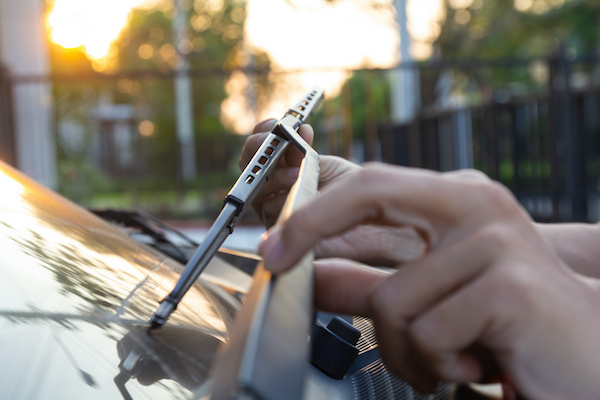Posted on 12/14/2020

You're driving down the road, and it starts to rain. No problem, you turn on your windshield wipers, but instead of clearing the windshield, you're left with a wet smear that's harder to see through than the rain was. Worse, you hear a horrible squeaking noise as they move across the windshield. Sound familiar? I've had this happen far too often, and usually when I'm on the highway, nowhere near an auto repair shop. The best way to avoid this scenario is to proactively replace your windshield wipers before they have a chance to make your drive more miserable than it needs to be. This should be part of your routine vehicle maintenance, along with oil changes and tire rotations. The consensus is that windshield wipers should be replaced every 6 to twelve months, depending on the quality of the wiper blades, and the conditions they're used in. If you live in a dry, sunny climate, you may get more use out of the wipers before needing to change them. If you live i ... read more
Posted on 11/29/2020

It doesn’t have to be hot outside for your vehicle to overheat. Your car can overheat in the winter as well. If you check your dashboard and notice the temperature gauge rising, it’s essential to know what to do. Your vehicle overheating can be dangerous and cause significant damage and costly repairs. Below are a few tips to take if your car suddenly overheats. Turn on the heater. If your car is overheating, it will be tempting to turn the air conditioner on. However, even though it’s counter-intuitive, it’s better to turn your heater on. Turning the heater helps disperse the heat coming from inside the engine. Pop the hood. When it’s safe to do so, pull your vehicle over to a safe place. Driving your vehicle while it’s overheating is dangerous and can cause permanent damage. Once you pull over, turn off the engine. Give your car a few minutes to cool down, and then pop the hood t ... read more